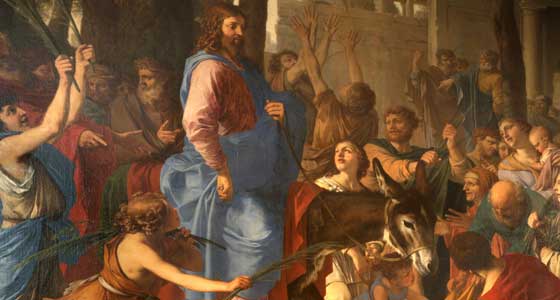Dupes, Deceivers, or… Catholics?

The Author in his own words:
C.S. Lewis’s Trilemma: Liar, Lunatic, or Lord
In Mere Christianity, C.S. Lewis famously poses a trilemma, sometimes called the Liar, Lunatic, or Lord argument, which works like this:
Jesus presents himself as the Messiah, as the Son of God, and even as God. Given this, the three ways we can make sense of him are to conclude that he was delusional (believing he was God when he wasn’t), deceptive (knowing he wasn’t God but duping his followers into believing he was), or divine. The argument is straightforward enough, but Lewis thought it important “to prevent anyone saying the really foolish thing that people often say about him: ‘I’m ready to accept Jesus as a great moral teacher, but I don’t accept his claim to be God.’”
After all, “a man who was merely a man and said the sort of things Jesus said would not be a great moral teacher.” He concludes that we must not “come with any patronizing nonsense about his being a great human teacher. He has not left that open to us. He did not intend to.

I’d like to propose another trilemma of sorts.
The Early Christians and Catholicism
We have seen that the early Christians were Catholics. They believed what Catholics believe (for instance, on the saving nature of baptism), they worshiped as Catholics worship (with the holy sacrifice of the Mass), their churches were Catholic churches (complete with bishops), and their Gospels were the same four Gospels that Catholics use today.
There are three ways to respond to all this.
First, we could conclude that the early Christians were duped. Someone somehow tricked them into thinking false things about Christianity. It's difficult to see how anyone can settle for this theory, because the timeline is just too short. I might fool someone about ancient history, but I’d have a harder time fooling people about the teachings of the apostles when the apostles or the students of those apostles lived among them.
Second, we could conclude that they were themselves deceivers, knowingly peddling a false version of Christianity and lying by claiming that they had received this from the apostles when they knew they hadn’t. It’s hard, though to square this cynical view of the early Christians with the faithfully selfless lives we know they led.
It’s worth recognizing, too, that if we opt for either of these first two approaches, we can hardly have confidence in the Bible. For how can we trust a bunch of dupes or liars when they tell us they’re accurately preserving the writings of the apostles? It does no good to say, “Maybe the Holy Spirit preserved the biblical texts” while expressly denying that he guided the preservation of their meaning. The promise Jesus made at the Last Supper is that the Holy Spirit would guide the Church into “all the truth” (John 16:13), not that he would abandon the Church while protecting the book.
Moreover, our trust in the Holy Spirit is based in no small part upon what we read in the same Scripture whose reliability is now in question. And so, concluding that the early Christians are untrustworthy is even worse for Protestantism than assuming they’re trustworthy.
The Third Option: Faithful Disciples
That leaves us with a third option: that the early Christians, for all of their individual faults, are faithful disciples. They listened attentively to what the apostles taught, they lived by those teachings, and they defended those teachings, no matter the price. And what it looks like to live out what the apostles taught is simply the Catholic Church.
Did you enjoy this excerpt from Joe Heschmeyer's The Early Church Was the Catholic Church?
You can get your copy today for just $10 plus Free Shipping (U.S. Addresses Only)
Recent Posts
-
What's Right, and What's Wrong—Salvation Hangs In the Balance
The Catholic Church teaches us what actions are gravely sinful and must be avoided so we do not for …Feb 17th 2026 -
Hasty Generalizations and True Scotsmen
No True Scotsman is a type of logical fallacy that involves making exceptions when a claim is contr …Feb 16th 2026 -
Saved By Faith Alone?
The Protestant Reformation was launched when a Catholic priest named Martin Luther thought he’d dis …Feb 10th 2026









